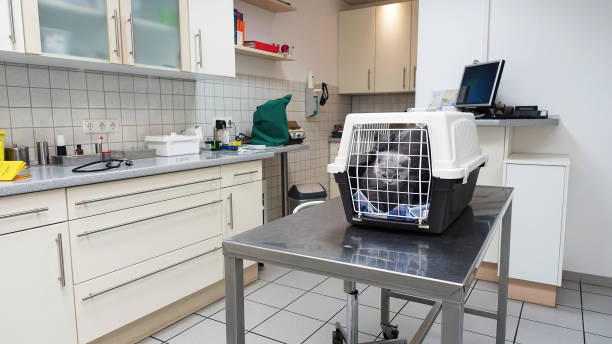Clumping vs. Non-Clumping Cat Litter: What's Best for Your Feline?
Wiki Article

Cats are beloved companions in countless households worldwide, and part of the responsibility of feline ownership involves selecting the right litter and litter box that matches both the requirements of our feline good friends and our own. With a myriad of alternatives offered, navigating through the options can be overwhelming. This guide aims to streamline that procedure, providing you with whatever you need to understand about cat litter, litter boxes, and systems.
The first action in cat care is choosing the right cat litter. Alternatives range from clumping, non-clumping, silica gel, natural, and natural ranges. Clumping litter is popular for its ease of cleaning, while non-clumping litter is frequently more affordable and still efficient. Natural and natural litters provide environmentally friendly alternatives but can differ in their absorbency and smell control capabilities.
Modern cat owners can pick from a variety of litter box systems, including automated and self-cleaning designs that use convenience and minimized upkeep. These systems can be a significant financial investment however deserve considering for those with busy way of lives.
Eco-conscious feline owners have several choices, consisting of eco-friendly and flushable cat litters that reduce ecological effect. Nevertheless, it is essential to balance benefit with ecological issues, as some flushable litters might not be suitable for all plumbing systems.
Appropriate training is essential, particularly for kittycats or cats transitioning to a brand-new type of litter or box. Consistency and patience are essential. Regular cleaning and upkeep of the litter box are vital for the health and well-being of your feline, along with for odor control in your home.
The benefits and drawbacks of different types of cat litter are large. Silica gel litter is extremely absorbent and lasting but can be more costly. Natural litters, while much safer for the environment, might not manage smells as effectively as synthetic options. Understanding the specific needs of your cat and your preferences for upkeep can assist in making the best choice.
When choosing a litter box, consider the size, shape, and style that will best suit your cat. Some cats prefer open boxes, while others like the privacy of a covered box. Senior felines and kittycats might require boxes with lower sides for simple gain access to.
Odor control is a considerable concern for numerous feline owners. Choosing the right type of litter, regular cleansing, and making use of accessories like odor eliminators and litter mats can assist keep your home smelling fresh.
The health monitoring litters readily available today can signal owners to prospective health problems by altering color in action to changes in pH or the presence of blood. In addition, the ecological effect of cat litter is an essential factor to consider, with many owners choosing naturally degradable or recycled choices.
Picking the best cat litter, litter box, and upkeep regimen is necessary for the cat litter pellets health and happiness of your feline, in addition to for keeping a clean and odor-free home. By thinking about the requirements of your feline and the useful aspects of litter and litter box maintenance, you can develop a comfortable and sanitary environment for your furry good friend.
How often should I alter my cat's litter? It depends upon the kind of litter you're utilizing and how numerous cats use the box. Clumping litter needs to be scooped daily, with the whole box altered every 2-4 weeks. Non-clumping litter often needs more frequent changes.
Are automated litter boxes worth the financial investment? Choosing the best cat litter, litter box, and maintenance regimen is vital for the health and happiness of your feline, in addition to for keeping a tidy and odor-free Walnut Shell Cat Litter home. By considering the needs of your feline and the practical elements of litter and litter box maintenance, you can develop a comfortable and sanitary environment for your furry buddy. For Modern Litter Boxes lots of, the convenience and reduced upkeep of automated litter boxes make them a beneficial investment. Nevertheless, some cats might be afraid of them, so it's not a one-size-fits-all option.
Can diet impact litter box odor? Yes, a feline's diet can substantially impact the smell of their waste. Premium, easily absorbable foods tend to produce less smelly waste.
By comprehending the vast world of cat litter, litter boxes, and systems, you're well on your method to providing a tidy, comfy, and sustainable environment for your cat.
Picking the right cat litter, litter box, and upkeep regimen is important for the health and happiness of your feline, as well as for keeping a tidy and odor-free home. By thinking about the needs of your feline and the practical elements of litter and litter box upkeep, you can produce a comfy and sanitary environment for your furry friend.